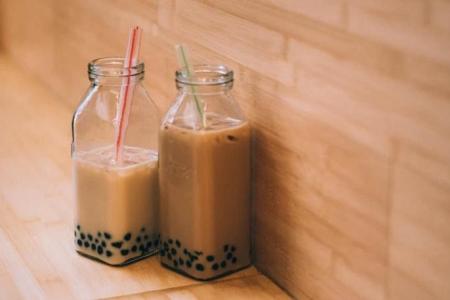F&B outlets selling freshly prepared drinks not expected to test drinks for Nutri-Grade mark
Food and beverage (F&B) outlets that sell freshly prepared drinks will not be expected to test their beverages in the lab for their sugar and saturated fat content for the Nutri-Grade mark, to be implemented at the end of the year.
The Health Promotion Board (HPB) said, in response to The Straits Times’ queries, it will “accept other supporting documents during post-market surveillance to justify the grading of beverages”.
These include calculations based on the nutrition information panel of the ingredients indicated in the establishment’s recipe.
“The individual or entity that owns the establishment is responsible for calculating the sugar and saturated fat content of the beverage, and determining its grade according to the Nutri-Grade grading system,” said HPB.
Sellers and suppliers of freshly prepared drinks, whose revenues did not exceed $1 million in the latest financial year and who supply such drinks to fewer than 10 food outlets, will be initially exempted from implementing the Nutri-Grade mark.
The Ministry of Health (MOH) said previously that this concession would be reviewed over time, with adjustments made when necessary.
The Nutri-Grade labelling regulations - aimed at reducing Singaporeans’ sugar intake by helping consumers identify beverages that are higher in sugar and saturated fat - first came into effect on Dec 30, 2022 for pre-packaged drinks such as soft drinks, milk and yogurt drinks and instant powdered beverages.
Earlier in February, MOH announced that besides food outlets and caterers, non-retail settings such as workplaces, schools and healthcare institutions will be required to display Nutri-Grade labels for drinks with high sugar content by end-2023.
This applies to pre-packaged and freshly prepared drinks, and extends to those from vending machines, whether the drinks are customisable or not, said the ministry.
The Nutri-Grade system comprises colour-coded grades from A to D, with D containing the highest sugar and/or saturated fat content.
Currently, only grades C or D pre-packaged drinks and non-customisable drinks dispensed from machines sold in retail settings must be labelled.
Such labelling is optional for those with A or B grades. Retailers are also not allowed to advertise D-graded drinks.
By the end of 2023, the Nutri-Grade labelling system will also apply to freshly prepared drinks such as tea, coffee and bubble tea.
Freshly-prepared drinks without a default recipe - which requires consumers to state their preference for selected ingredients when ordering - would receive the grade for the highest sugar and/or saturated fat content possible for the drink.
For example, bubble tea, which requires consumers to choose their desired sugar level between 0 and 100 per cent, will be graded according to the 100 per cent sugar version.
F&B establishments are also required to display the Nutri-Grade mark next to C- and D-graded beverages listed on signs, posters, and other materials that inform its sale to consumers.
HPB said that non-compliance with these new provisions from end-2023 will be an offence punishable with a fine not exceeding $1,000. In the case of a second or subsequent conviction, there will be a fine not exceeding $2,000.
Get The New Paper on your phone with the free TNP app. Download from the Apple App Store or Google Play Store now


